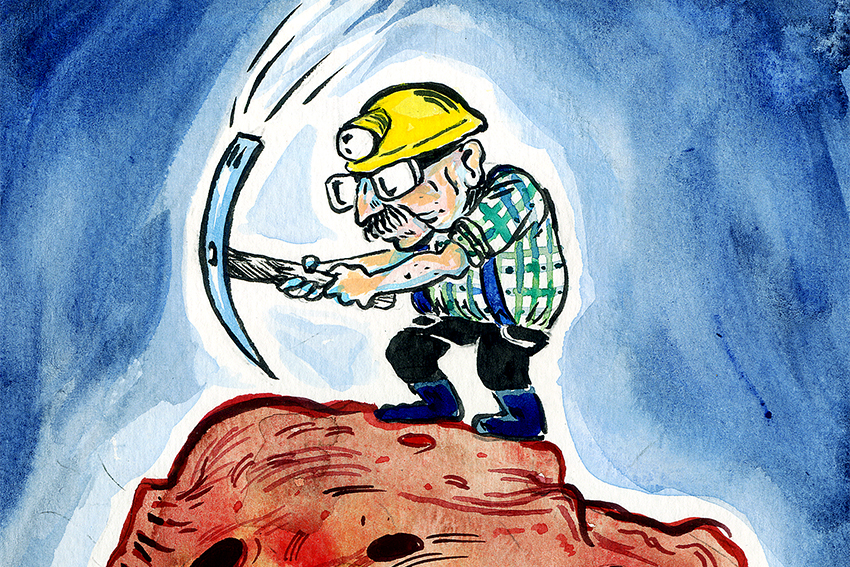Most people are content with watching asteroids in the movies; Brent Barbee wants to catch them in real life.
Barbee is a UT alumnus working for NASA’s Goddard Space Flight Center as part of the team that developed OSIRIS-REx, an unmanned spacecraft en route to an asteroid known as Bennu to collect samples from the asteroid’s surface and bring them back to Earth.
Barbee said studying samples from Bennu may give researchers clues about the origins of the universe.
“Asteroidal material is largely unprocessed since the earliest days of the solar system,” Barbee said. “When we study the chemistry of those asteroids, we study what their chemical makeup is and other aspects of them that give us clues of the processes that formed them and insight into what conditions were like.”
Barbee said he is also interested in the possibility of sending humans to visit an asteroid in the future.
“It might take anywhere from several months to half a year to reach the asteroid and the crew might then spend [up to two months] at the asteroid, exploring it and studying it,” he said. “The total round-trip would be ideally somewhere between six to 12 months.”
In addition to working on the OSIRIS-REx missions, Barbee works with the Near-Earth Object Human Space Flight Accessible Target Study, a system that automatically monitors the mission accessibility of near-Earth asteroids.
“There are currently a little over 1,800 such asteroids identified that are more dynamically accessible than Mars in a round-trip sense,” he said.
Even when asteroids fall outside the reach of human travel, Barbee said an unmanned spacecraft could drop samples off at more accessible locations, such as the moon.
Barbee said one reason he studies asteroids is because they can pose significant risks to Earth. He said this motivates him and other researchers to construct and operate telescopes to make sure that asteroids aren’t on a collision course with the planet.
“We need to be ready to deal with [asteroids],” he said. “We have to build and run systems to deflect or destroy the objects and field test them so we can be prepared when the day comes where we find one that we have to deal with.”
Barbee said he finds this potential for both progress and hazard intriguing.
“There’s a dual nature of opportunity and risk and I find that to be very fascinating and compelling,” Barbee said.
Barbee said he doesn’t believe a manned mission to Mars is plausible within the next 20 years due to budget problems and the amount of time it takes to develop the tests and prove all the technology involved. However, he said that NASA’s continuation of its robotic exploration program is a source of promise and potential in interplanetary discovery.
Aerospace engineering freshman Nicolas Saenz said it’s important to study all aspects of what the universe has to offer, even the less flashy components.
“If Star Trek has taught me anything, there’s no reason why we shouldn’t keep exploring and discovering what our universe has hidden for us,” Saenz said. “As someone who would one day like to see a manned mission to Mars happen in my lifetime, I think that only begins to make a mark on the surface — there’s more that us engineers and scientists have to do, but within that, there’s so much potential.”















